Book Reviews by Genre: Literature
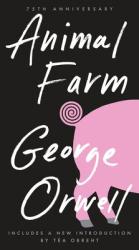
Animal Farm by George Orwell is an allegory about a farm of talking animals that push out their farmer after the abuse that they endure and proceed to create their own form of government. The animals form their government without the realization of the need to work for survival and have to adapt to the situation which causes discrepancies and arguments. I thought that this book was really good due to the surprising climax, ruthless betrayal, and the historical relation that it contains, but it does have some dragging parts. The plot is unpredictable and very interesting throughout. I had to read this book for school and thought it would be boring, but after reading it I gained knowledge of history through symbolism and recommend this book for history enthusiasts such as myself. Reviewer Grade: 9
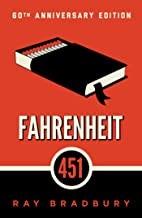
Fahrenheit 451 by Ray Bradbury is a dystopian novel about Guy Montag; a firefighter in a world that has illegalized books. His occupation results in burning books that are found in citizens' homes and after witnessing a woman that was burned with her books after refusing to leave them, Guy has a disturbing realization of his society. The progressive plot gave me the excitement of coming home and reading while the ending left me in a jaw dropping manner. I thought that the book was amazing due to the mysterious plot and the relations it has to our world today. I had to read this for school and thought it was going to be boring, but in the long run it became one of my most favorite books I have ever read and I would definitely recommend it for readers who love dystopian novels. Reviewer Grade: 9
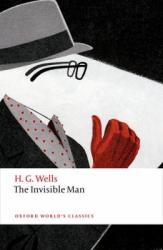
The Invisible Man by H.G. Wells is a science-fiction novel about a man in England in the 1800s who creates a way to make himself completely invisible without a way to change it. The life of a scientist named Griffin, who uses his invisibility for harm, is described throughout the book with an unpredictable ending. I selected this book for a school report, but I would definitely recommend the book to read if wanting a novel that keeps you on edge and wanting more. I thought that this book was pretty good due to the mysterious plot and ending though there were some dragging parts. I believe it is worth the wait for the surprising ending that left me in shock.
Reviewer Grade: 9

"The Invisible Man" by H.G. Wells is a gothic literature novel about an albino man in the 1800s who turns himself invisible. The book follows his journey through England as he commits a multitude of crimes and inevitably gets caught and killed. I didn't like reading it because I felt it was boring, and it was hard to keep reading since I had a strong dislike for the main character. Despite not liking the novel, I read it for school during our gothic literature unit, and it is a good example of gothic literature. "The Invisible Man" isn't surprising but rather shocking because the invisible man's actions are so abnormal. It could be relatable if you were wronged by someone or something and want to take revenge on them. It's not one of the best books I've read this year.
Introduction , imprint, synopsis, genre, central theme and evaluation
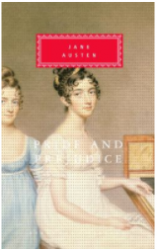
Really Good.
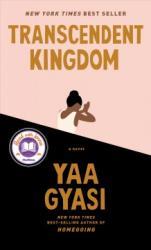
There was no sophomore slump for author Yaa Gyasi, who lit the literary world ablaze with her searing debut novel, Homegoing (2016). That work of historical fiction was deeply personal and her exceptional contemporary follow-up Transcendent Kingdom (2020) draws upon her experiences growing up with Ghanaian parents in in northern Alabama. This powerful and emotionally raw novel centers on Giffy, a fifth-year candidate in neuroscience at Stanford studying reward-seeking behavior in mice and the connections between depression and addiction. Her brother was a gifted high school athlete who died of a heroin overdose after a knee injury left him hooked on OxyContin. Her suicidal, deeply religious mother is bedridden. Dad left long ago. Giffy hopes science will find the why behind the suffering. But she still hungers for her childhood faith and struggles to find a balance between religion and science, hope and despair, living and inertia. It’s a personal journey with a conclusion that will leave you with hope, if not a clear answer.
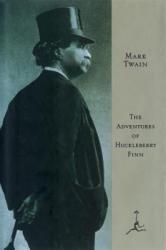
The Adventures of Huckleberry Finn is an exceptional novel filled with mischief, fun, and excitement. Huckleberry Finn is a young teenage boy who just ran away from his civilized, structured life in search of something adventurous and new. After leaving on a raft, he meets a slave, Jim, who slipped away from his home. Huck and Jim set out on a rafting journey down the river to make a new life and find Jim’s family. Along the way, Huck is conflicted between turning Jim, the runaway slave, in, or letting him reach freedom. As they go along, he discovers his true self and makes his decision about Jim. Filled with fun stunts, mishaps, and laughter, Adventures of Huckleberry Finn is an amazing classic you’re sure to love.

I loved this book. Celie, Shug, Nettie, and Sofia were such strong women, facing a hard life and rising above it. Celie in particular has cemented herself in my mind as one of the great female protagonists in all of literature. I love how she didn't let her circumstances squash her spirit. I learned so much about a wide variety of things in this book. I learned a lot about Africa in the 30s leading up to WWII and the desecration of the tribal land by the English. I learned about the treatment of African American women by African American men and about their resilience and bravery. I loved the ending. Perfect.
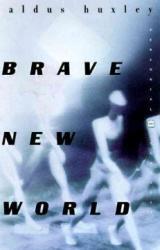
Brave New World by Aldous Huxley is about a futuristic society that revolves around conditioned people. People are made by machines that condition them emotionally and physically for a certain job. Since people are conditioned to perform certain tasks they are happy and content. This book follows Bernard who actively questions the system and is unhappy. Throughout the book, it brings up the question of whether it is better to have an orderly and perfect society or for people to have emotions and free will. Aldous Huxley does a wonderful job of building a world where individuality is erased. The book was an interesting read and would give it a 3 out of 5 stars.
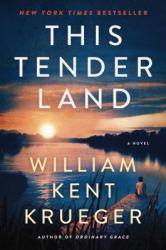
Orphaned and alone, Odie and his brother, Albert are sent to Lincoln Indian Training School where they spend the next four years of their lives. However, the superintendent is cruel and abusive, and after committing a grave crime, Odie is forced to run away. Together with his brother, Mose his friend, and Emmy, an orphaned girl, Odie and his newfound family take a canoe down the Minnesota River with plans to go to Saint Louis and settle down with their family. During their odyssey, the friends change in different ways as each of them grapples with their heart's truest desires.
This book is an allusion to a different popular story, and I loved the different references and allusions. The main characters are all children, but each of them brought me so much insight into the world and what it means to "find what's in your heart". The novel is also full of great surprises that kept me wanting to read even more! It's mostly an adventure novel, but there is some romance and elements of fantasy and magic, so there's a bit of everything for everyone. The ending was also beautiful, and although it was a bit sad, it was fitting.
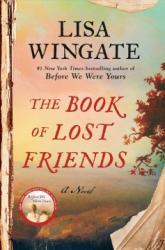
This book was not necessarily easy to read but it was so well done:it juxtaposes the two time lines and the main characters with aplomb and great sustained suspense. 1888 vs 1988 racism and the differences and the shameful similarities. Fascinating characters, great plotting and page turning suspense. Thought provoking and a really good read. Really glad I read this.
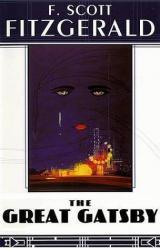
The Great Gatsby is likely the most commonly read book by students between middle and high school, an assigned reading that teaches students what some aspects of life were like in the 1920s and the over indulgent society that preceded the Great Depression. However, it is also a very simple book about an image obsessed man whose life in a summer is documented by a man who barely dares to call himself a friend. For all the hype surrounding The Great Gatsby, especially with a movie starring Leonardo DiCaprio, it is honestly a pretty underwhelming read. Never was I completely enraptured by the story or awestruck by any new information given by the author. It is a descent book with some interesting underlying meaning but overall I would say it is mediocre at best, certainly not a literary masterpiece to be held in prestige.
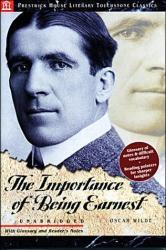
The Importance of Being Earnest, by Oscar Wilde, is a short play about characters who are indeed NOT earnest. Algernon, a bachelor living in London, has an imaginary friend called Bunbury whose false existence he uses to get himself out of unpleasant social gatherings. Similarly, Jack—who lives in the country with his ward, an orphan named Cecily—has a made up brother named Ernest, whose constant state of “illness” allows him to visit the city when he pleases. From these false identities arises a huge misunderstanding, when Algernon decides to visit Jack’s country home posing as Ernest, the imaginary invalid brother whom Jack had planned to kill off that very day in order to end his pretending once and for all. The two friends must sort out the misunderstanding with their respective fiancées, and end up making an ironic discovery in the process.
This play is highly amusing, with its opinionated characters and witty commentary. It has a satisfying denouement; from start to finish the plot is engaging, and it doesn’t drag on. I would recommend The Importance of Being Earnest to anyone who likes a clever and entertaining comedy, or just a good laugh!
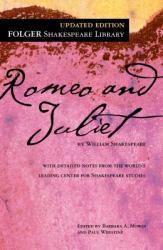
Many have probably heard of this book, one of Shakespeare's best dramas written. Everyone has probably heard about how it's of how two lovers who try to keep a relationship through their parents' everlasting feud, but there's much more to it. It's not only about love, but also about trust, death, and interconnecting relationships. It's about heartbreak and pain washed away with heartache and drama. But one thing is for sure, the two won't stop trying to be together until death takes them apart.
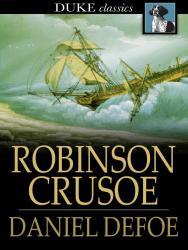
Robinson Crusoe is an incredibly fun novel to read. It is a fictional autobiography about the character Robinson Crusoe and his adventures while shipwrecked on an island. While the book does use some confusing language at times, the creative results it produces are greatly entertaining. The book starts slow, however, the pacing of the book almost depicts the exact development of Crusoe through his stagnant start and then a life of adventure later on. Around a third into the book, Robinson Crusoe simply states that he would focus on only the important parts of his adventure due to his lack of ink. It is at this point where the book starts to shine, and Robinson's island survival starts to mix supernaturalism and realism. The novel does not have any super deep themes and rather opts to just tell a straightforward story, unlike many modern island survival novels that attempt to be thought-provoking. Overall, the novel was a fantastic read. I would recommend this book to any person that enjoys adventure and survival.
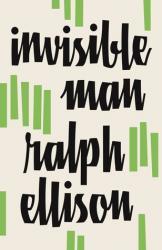
Ralph Ellison's Invisible Man is an essential American classic. Written in the late 1940s, it tells the story of a young African American man who moves north during the Harlem Renaissance and faces many trials as he attempts to find his place in society. This novel is a candid portrayal of life for Black Americans in the pre-Civil Rights era, exposing the hardships and prejudices that are often overlooked in retrospect but were all too real for Blacks during this time. It is honest, reflective, and blunt; often unsettling and disturbing. A central theme of Ellison's novel is the idea of blindness and how it affects identity. The protagonist is left confused and misguided as a result of the blindness of those he encounters, trying to fit into the expectations of others, until at last he realizes that he is, and has always been, "invisible" to society. With this revelation, the invisible man at last finds his own identity.
The novel recounts all of the events leading to the protagonist's discovery of his invisibility, beginning at his colored college in the south and taking the audience north to Harlem. The protagonist faces many different circumstances which reveal just how marginalized Blacks were in the United States in the 30s; each episode is a testament to the challenges faced by African Americans (even a reflection of the challenges faced by African Americans today) due to the blind discrimination of white people. Each incident faced by the invisible man is largely a reiteration of previous ones, merely taking place in different circumstances, which emphasizes his lack of identity--even his own blindness. Eventually, due to an unfortunate incident, the protagonist loses all sense of who he used to be, and this is what allows him to begin to make change--for better or worse. There are numerous violent and suggestive scenes in this novel, so I would recommend it to older, more mature teenagers.
Ellison takes his readers on a powerful, enlightening journey with Invisible Man. His compelling writing is intertwined with tragic humor and soulful undertones of blues and jazz, the backdrop for an incredibly raw and moving novel. The invisible man's story is very relevant to society today, and Ellison's messages should serve as reminders to us all. I believe every American would benefit from reading this novel at some point in their life; it illustrates such an important part of our nation's history, and that of African Americans. Ellison portrays the protagonist's emotions with such introspective depth, every conflict and thought explored in all its complexities. Invisible Man may not be a particularly fun read, but it is important and it is worthwhile.
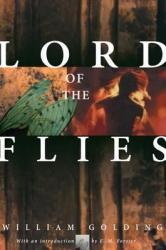
A group of boys crash on an uncharted island. The boys are left with no adult supervision, leaving them to survive on their own. They begin to create a form of order, but soon that order collapses and terror begins.
I had to read Lord of the Flies for school, but it exceeded my expectations. This book made me want to cry, stare at it and ponder what I had just read and throw it across the room all at the same time, but in the best way possible. This book will keep you on the edge of your seat and reading until the very end. There will be a character or characters that you can relate to and root for. This book is a little more on the violent side. I would definitely recommend it for an older audience. Even though classics are considered boring and bland, this one is definitely worth a try. It's an emotional roller coaster that you don't want to miss.
Reviewer Grade: 10
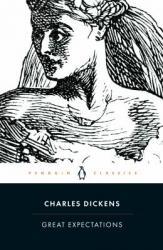
Great Expectations is a story about a young boy, Pip. It starts off with Pip in his expected life, a Blacksmith with his Stepfather Joe. When he comes of age to be apprenticed, he is sent to a mansion to work, under the employ of a strange Miss Havisham. She flips his views upside down, while breaking his confidence in himself. He sees himself and his friends, the Commoners, as dirty and common. His hopes change as well, but are broken.
The story in this is intriguing, as well as long and dense. I personally didn't like this one, but you might.
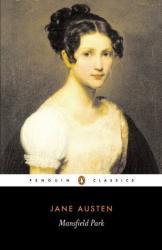
As a young girl, Fanny Price is sent to live with her cousins the Bertrams at their large estate in Mansfield Park. The book follows Fanny from her childhood living at Mansfield into her early adult life. Although they are family, Fanny has no one to rely on. She is isolated from the world and finds comfort in reading. Austen most wonderfully masters the art of empathy in this novel, as the reader feels incredibly broken whenever Fanny is hurt or emotionally worn. Mansfield Park has been called controversial for the fact that Sir Thomas, Fanny's uncle, owns a plantation with slaves. Although this is wrong, it is an uncomfortable reality of the time that is era-appropriate. Besides this, Sir Thomas is not made out to be a good person worth emulation. This book is highly recommended for lovers of Austen or Jane Eyre.
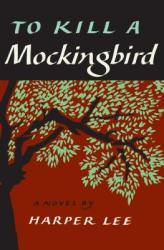
To Kill a Mockingbird is a novel entirely worthy of its praise. The humor, subtlety of the impact left by the narration from a young girl's perspective, and incredibly real themes all fit together perfectly. The story is a straightforward read and combined with the intricate storytelling based on the author's own life, the topics surrounding race and justice feel meaningful. The story follows Scout Finch, a young girl, and her friends Jem and Dill while depicting their views on life in the South during the Depression. The juxtaposition of childish natures and mature outlooks on violence, prejudice, and societal struggles brought about by the narration stand out. Each instance of injustice and depiction of the imperfections of humanity in a struggling society tie the development of the characters and rise to the climax together well. Overall, I would recommend this book to anyone, as it is a fantastic, and rather light read.
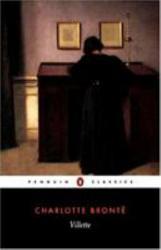
Villette is an incredibly hard read. The novel follows Lucy Snowe in her escape from England. She reminisces on her life's story and the overall storyline is intriguing. The side characters play their parts well, and certain tragedies in the story do leave hard-hitting impacts. Nevertheless, the book is over four-hundred pages of intricate literature with an incredible range of advanced vocabulary. However, the complexity of the read does add a bit of fun to the book, despite drawing attention away from the story itself. Looking up advanced English and French vocabulary almost makes the novel a neat, theatrical dictionary. While hard to understand and read, it allows the reader to dive deeper into each character and develop them more on a personal level. Overall, I would only recommend this book to people looking for a challenging read and with time on their hands.
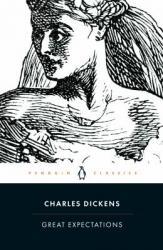
I read this book because it’s my mom’s favorite book of all time. It follows a young boy named Pip as he grows up. It’s a love story, and a pretty good one. Though it’s a little hard to read because of the old style English writing that Dickens used, it’s definitely worth reading. Overall, I would highly recommend this book!
grade: 11th
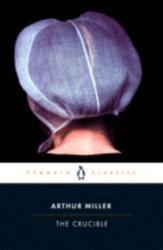
I read this book in English class my junior year of high school. I find the Salem Witch Trials interesting, so I was excited to read this book. While this book is based on actual events, there are some added fictional parts. I thought it was interesting how rumors and blame could cause the deaths of so many people who did nothing wrong. Overall if you find the Salem Witch Trials interesting, I would highly recommend this book!
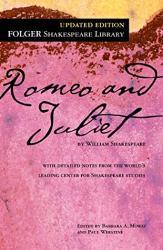
This Shakespeare classic tells the story of two star crossed lovers. While the story is well known, the play script is still rewarding to read. While the writing style can take a bit of time to become accustomed to, the thoughtfulness of the dialogue can be appreciated much better than while watching the play. While the ending of the book is somewhat spoiled in the prologue, the story telling is almost more important than the story. The writing is filled with word play and jokes in addition to the famous lines of eloquent iambic pentameter. Sometimes a translation is needed to fully understand what Shakespeare means in certain lines, but this book will leave readers with a new appreciation for poetry and writing.
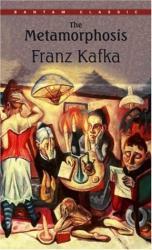
After turning into a bug, Gregor realizes he is late for work. However, it soon becomes apparent that Gregor will no longer be able to work. His family's view of him quickly changes as his previous contributions to it are quickly forgotten. This thought provoking book questions people's worth after they are lo longer able to contribute to society. Although the writing style is dry, the book is filled with allegories and symbolism that comment on the nature of individuals in society. This leaves readers to examine their own views on an individual's worth to society.
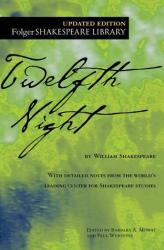
Twelfth Night is a play written by William Shakespeare. It is about multiple love triangles that take place in Illyria. The main problem is that two twins both think the other is dead and are mistaken for each other which creates many problems.
Twelfth Night is a horrible play/book. It is very dull and extremely confusing as people's names are changed throughout the play and people are constantly being mistaken for each other. Unless you have to read this, I would not recommend this book to anyone unless they want to sit through a very confusing, dull play.
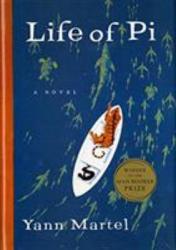
Life of Pi starts off slowly, with a lot of details that I thought were irrelevant to the story. While Pi is moving with his family and their zoo, their ship sinks in a storm. Pi makes it to a life boat, but there are also four animals from the zoo on it. One of the animals is a tiger, which Pi must learn to control. He must also get food, water, and protection from the sun and sea in order to survive. This book shows the struggles to survive while isolated from society and also shows the fight to retain one's humanity throughout this struggle.
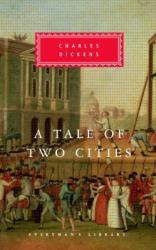
A Tale of Two Cities is a captivating book. Set during the period leading up to and during the French Revolution, the book details how the French aristocracy and the French Revolution affected the rich and the poor through the stories of Charles Darnay and Alexandre Monette. It also shows the angry and vengeful side of the Revolution through the Defarge's and their wine shop. A scene where a wine cask is dropped demonstrates the desperation and poverty experienced by the citizens of Paris that led to the anger behind the revolution. Dickens also brings the book to life through life-like characters that emotionally invest readers in the story. Alexandre Monette exhibits fatherly care for his daughter, yet he also struggles to deal with his time in prison, leading him to rely on his daughter for support. Sydney Carton contains likeable aspects mixed with relatable flaws that make him instantly lovable. Dickens expertly connects each scene to develop the story and foreshadows multiple aspects of the climactic ending throughout the book.
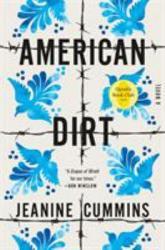
I really enjoyed this book and the author's style and her ability to draw you in. She is very detailed in her descriptions with the main character's relationships and she causes you to become aware of issues in Mexico in a manner you may not have considered. While the book has received much criticism (you can research this), I think it is a worthy read to make us all want to dig deeper into the migrant situation.